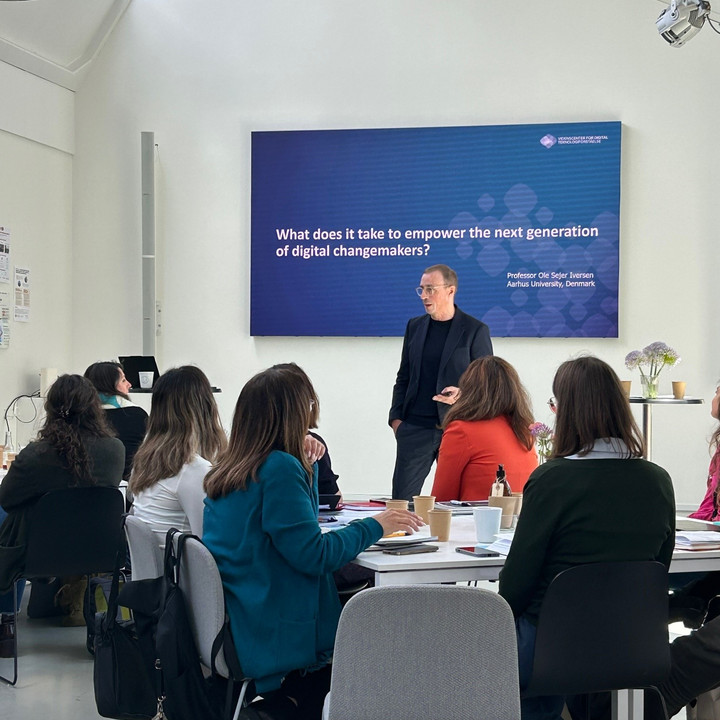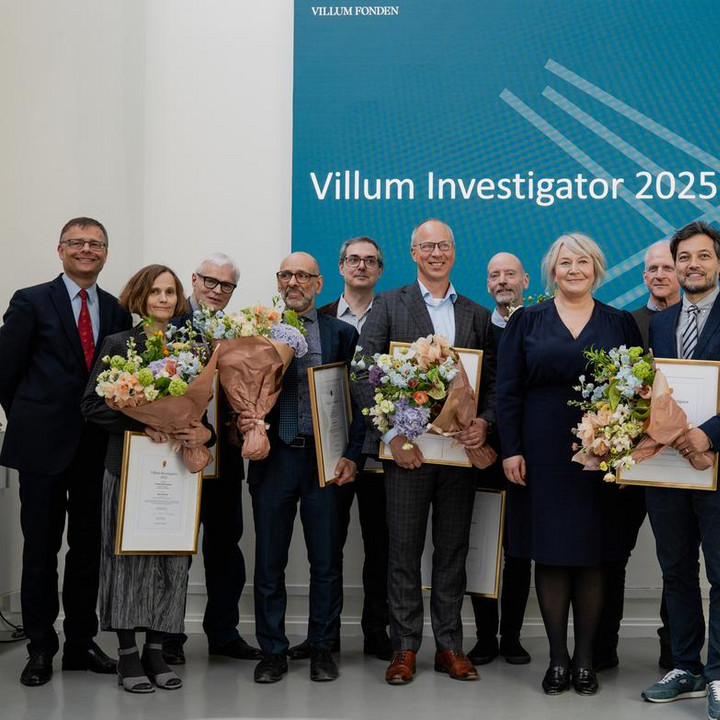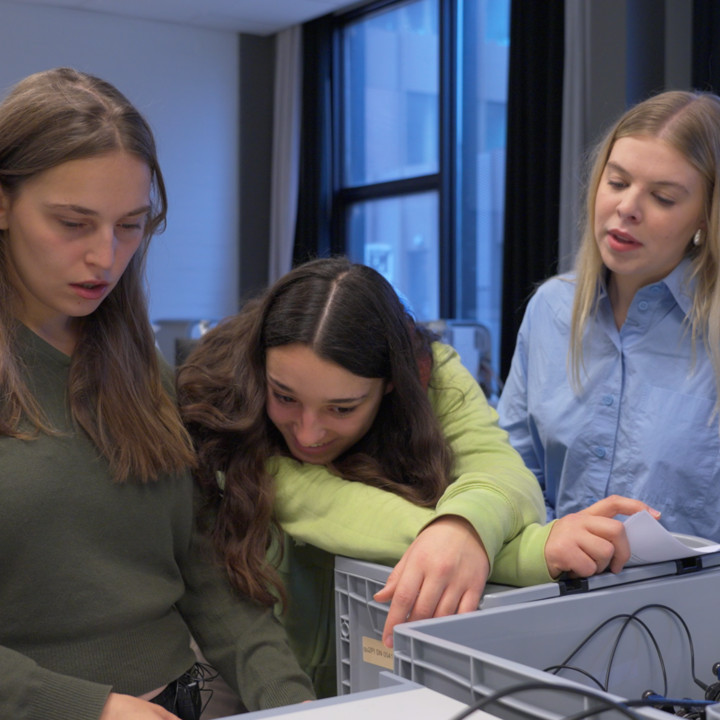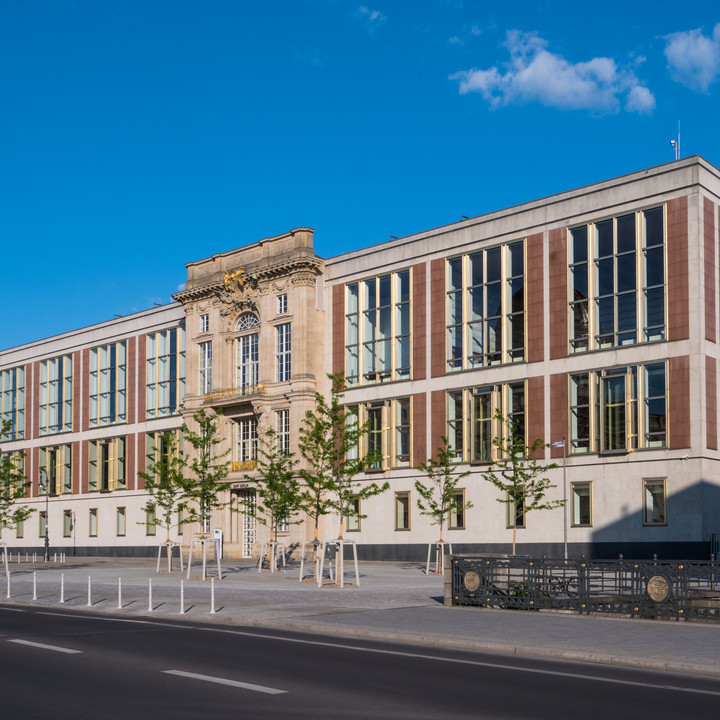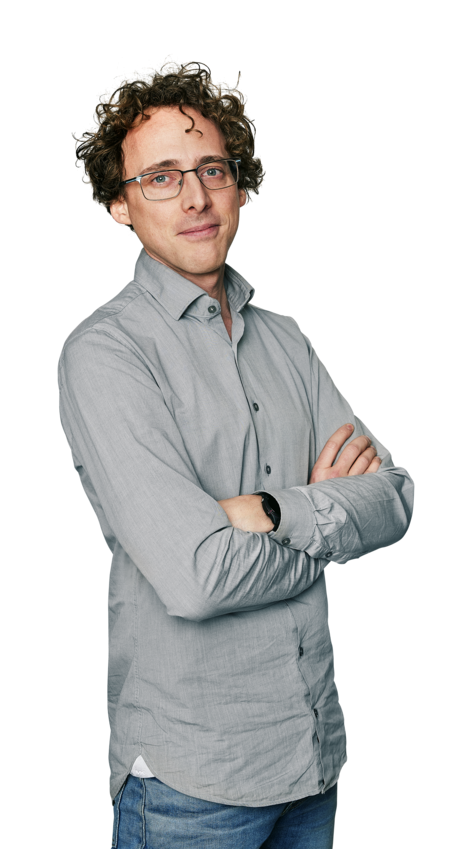New Digital, Green, and Social Initiatives in the Czech Republic and Slovakia for Young People

Nine projects aim to strengthen young people's motivation for education and equip them to become leaders in the green and digital transition. The projects range from vocational schools working to enhance students' digital and green skills to NGOs providing mentor support to vulnerable youth from Roma communities, helping them continue their education. The Villum Foundation has granted a total of 100 million DKK to the projects under the European Youth and Education grant area.
In the city of Frydek-Mistek in northeastern Czech Republic, students and teachers at the city's vocational school will jointly develop a green technology park for both educational and recreational use. In Bratislava, the capital of Slovakia, a school will establish a completely new form of technical vocational education, where traditional teaching will largely be replaced by student-led project work. This method will later be expanded to a third of the country's other vocational schools.
"The digital and green transition requires that Europe's youth develop skills to use new technologies in everyday life and at work. And they need to be able to translate their knowledge into smart solutions – for the benefit of a greener and more sustainable society. This is what we want to support with our program," says Agi Csonka, head of programme at the Villum Foundation.
Other projects focus on supporting the most socially vulnerable children and young people, who often drop out of the education system today. In multiple cities in Slovakia, several organizations will start activities such as mentoring schemes and the establishment of leisure centers for Roma children and youth. Together with scholarship programs, this will motivate, develop skills, and keep these children and young people in the education system.
Unconventional Partnerships Driving Change
In several of the funded projects, new forms of partnerships are being built. In the city of Brno, Czech Republic, a technical vocational school, with the help of a Danish consortium consisting of vocational schools, companies, and green organizations, will create a series of teaching modules to be included in various education programs, aimed at strengthening students' green and digital skills.
"The project has received good support from regional authorities and businesses," explains Agi Csonka. "We expect that the experiences with the new education programmes can be spread to several Czech vocational schools."
At the Open Future project in Slovakia, a 3-year pilot program will be expanded, introducing socially disadvantaged children aged 11-15 to new digital technologies, soft skills, and entrepreneurship in a new kind of creative training center. With project-based learning and help from mentors from the business and public sectors, children will be better equipped to also create change in their local communities.
"Our long-term goal is to create a programme that can help reduce the social and economic disparities among the children. By combining technology workshops and strong forces from municipalities and businesses, the children will be able to respond to a changing world and societal challenges," says Martina Kolesarova, director of the Pontis Foundation, which initiated the project.
The grant will, among other things, be used to build a network of innovative technology centers and directly serve 8 municipalities and 8 primary schools and organizations in Slovakia with the participation of 490 children. The program will also be available to teachers, students, and NGOs throughout Slovakia.
The Villum Foundation aims to equip Europe's youth to become frontrunners in the digital and green transition.
Through the European Vocational Education and Training Initiative (EVI), the Villum Foundation supports inclusive VET with a focus on green and digitized vocational education and works to promote young people's social skills and motivation for education. Our primary focus is on projects in the Czech Republic, Slovakia, Italy, and France.
Read about the nine projects
With the Green Transition Academy the partners’ ambition is to develop and implement new learning modules for green and digital training at the Purkynka school in the Czech Republic. The courses will be, coupled with the design of interactive and engaging active learning methods that can be implemented into the school curricula. The purpose of the project is to empower students and youth in Brno with a skill set that encompasses both green and digital competences, elevate the quality of training and provide training to teachers and facilitating networking opportunities through cross-cultural teachers’ lounges, along with supplying them with the necessary tools to be trainers in the twin green and digital transition.
The ambition is to create a VET model for the green and digital transition that can be further developed with additional courses extended to various sectors and VET schools throughout the Czech Republic. To achieve this goal, the end of the project will culminate in a conference where VET schools from across the Czech Republic will be invited to participate, sharing the results and course materials. The project is a cross national partnership between organizations, companies, schools, and municipalities.
The project aims to revolutionize Vocational Education and Training in Eastern Slovakia by embracing modernization, digitalization, and inclusion. The region of Trebišov and Michalovce has the highest ratio of recorded unemployment within Slovakia and since last year faced a wave of refugees from Ukraine. That’s why significant objectives are the successful modernization and development of a proper curriculum as well as the integration of disadvantaged groups into the Slovak VET system, incorporating them into the dual education system. These steps will contribute to the economic, demographic, and social development of the region. With a student body of 438 and 56 teachers, the institution prioritizes integrating the technology of Industry 4.0 and modern development into its curriculum, addressing the changing needs of both students and employers in the current economic landscape.
In the Teach Live Plus project, our aim is to tackle the issue of academic underachievement and drop-out rates among pupils aged 11-18 in the Czech Republic. The project strives to equip as many pupils as possible with the essential skills needed to smoothly transition from primary to secondary education and to successfully complete their secondary or vocational schooling.
The project involves 3 main activities:
- a new teacher training program focused on effectively engaging socially disadvantaged pupils in learning;
- advocacy initiatives to bring about systemic changes (mainly involving collaboration with state universities and the Czech Ministry of Education);
- evaluation to assess the qualities and limits of our new program in order to come up with suggestions for the improvement of teacher education in the Czech Republic.
The project concerns children and youth aged 10-18, including immigrants, with a difficult access to education due to socially and economically disadvantaged family backgrounds in the Prague area. The project wants to innovate the current programs and develop new programs based on the principle of individual activities: STABILIZATION = individual stabilization of target group and thereby enabling further development in the field of education; LEARNING = support and motivation for further education; DEVELOPMENT = motivation to promote experience and skills on digital technologies, climate, and sustainable environment. SPREADING GOOD PRACTICE = spread innovative procedures in contact/ social work, in resocialization programs, in social and legal protection of children and to disseminate new findings and developed methodologies.
Our vision is to renovate the outdoor spaces in the Business Academy building to be used for the implementation of mainly extracurricular activities for students and teachers, primary school students and the wider public. The space will of course be used for actual teaching, also for workshops, shows, performances of student English theatre and other cultural and educational events, holiday camp activities for primary school students.
The main idea of the project is to build a space that will not only be aesthetically pleasing, but also environmentally responsible and energy self-sufficient. The space will be equipped with a model of all available alternative energy sources and environmentally sustainable solutions - solar energy, wind energy, heat pump, waste and rainwater recovery. A big ambition is to implement hydrogen technology as a source of clean energy.
In September 2022, Lýceum C. S. Lewisa was launched, a new VET educational pathway, which redefines VET for the emerging challenges of the 21st century. Lýceum is based on three pillars: entrepreneurship, digital and character education. We argue that it is actually the combination of entrepreneurship (creating solutions) and character education (creating solutions for the improvement of society) that is key to tackling the green transition. Complemented by a strong foundation in digital skills, Lýceum equips students for the looming transitions unlike any other VET school in Slovakia. The grant will 1.) develop Lýceum into a mature educational pathway, 2.) scale-up our know how to 30% of Slovak VET schools and 3.) transform our school into a diverse green learning environment.
The project aims to systematically assist marginalized Roma youth from grade 8/9 in secondary school through the selection, transition, and successful completion of vocational post-secondary education, leading to integration into the job market. The project design incorporates the authors' experience managing state programs on dual (vocational) education to address limitations and gaps. Taking a holistic approach, the project actively involves parents, teachers, vocational schools, and potential employers to create a supportive, accessible, and inclusive vocational environment. Additionally, the project plans to collaborate at an institutional level with municipalities, Self-Governing Regions overseeing secondary and vocational schools, as well as enterprises, to establish local partnerships, raise resources, and institutionalize the program.
Open Future is a 3-year extra-curricular program for young people aged 11 to 15. This program offers non-formal vocational education in entrepreneurial, digital and soft skills, boosting equal educational opportunities. It specifically targets state schools with high number of students coming from disadvantaged backgrounds. A key feature is the after-school centers, designed as modern ‘co-working spaces' right on the school premises. The program champions the latest technologies, fosters innovative thinking and drives motivation for ongoing education and loftier life goals. Drawing from our five years of experience, we aim to expand the Open Future centers, make our curriculum open source, enhance staff and mentor capacities, and push for wider entrepreneurial education in Slovakia. We believe that, with the right skills, future changemakers can be found everywhere.
The Zebra Program is a multifaceted initiative aimed at disrupting the cycle of poverty during the vital developmental stage of adolescence. It emphasizes the augmentation of emotional, social, and intellectual growth among youth participants from marginalized Roma communities in Slovakia. The program is committed to empowering emerging leaders within the Roma communities by applying a participatory approach, who will subsequently engage their peers in enriching activities. These will serve as conduits to overcome barriers to social inclusion and employment. The planned activities will encompass mentoring by positive adult role models, afterschool tutoring, training in digital skills and financial literacy, and providing constructive afterschool recreational activities, dispensed daily. These activities are tailored to engage youth in sports and foster their character development. This will be augmented by community service initiatives and vocational training modules, including life skills training. Moreover, the Zebra Program will proactively target corporations willing to contribute to the vocational training and seek the collaboration of volunteers who will assume the roles of mentors, tutors, and trainers. By fostering connections between the marginalized Roma youth and the Slovak majority, the program aspires to mitigate social exclusion, prejudice, and institutional racism, all of which have historically impeded the Roma community's pursuit of dignity and self-sufficiency. This initiative is a robust response to generational poverty, enhancing the prospect of a life imbued with dignity and self-reliance for excluded Roma youth.
